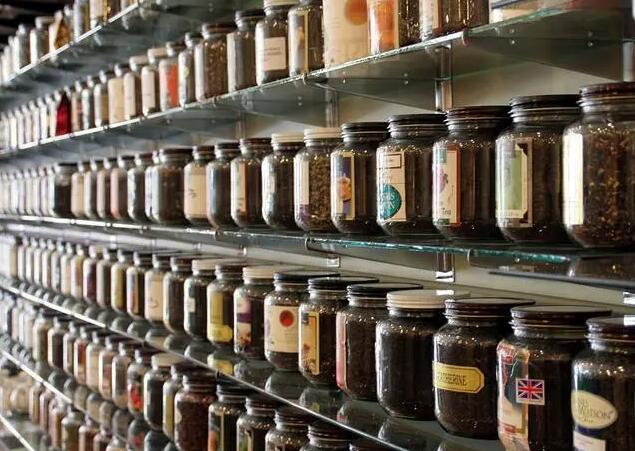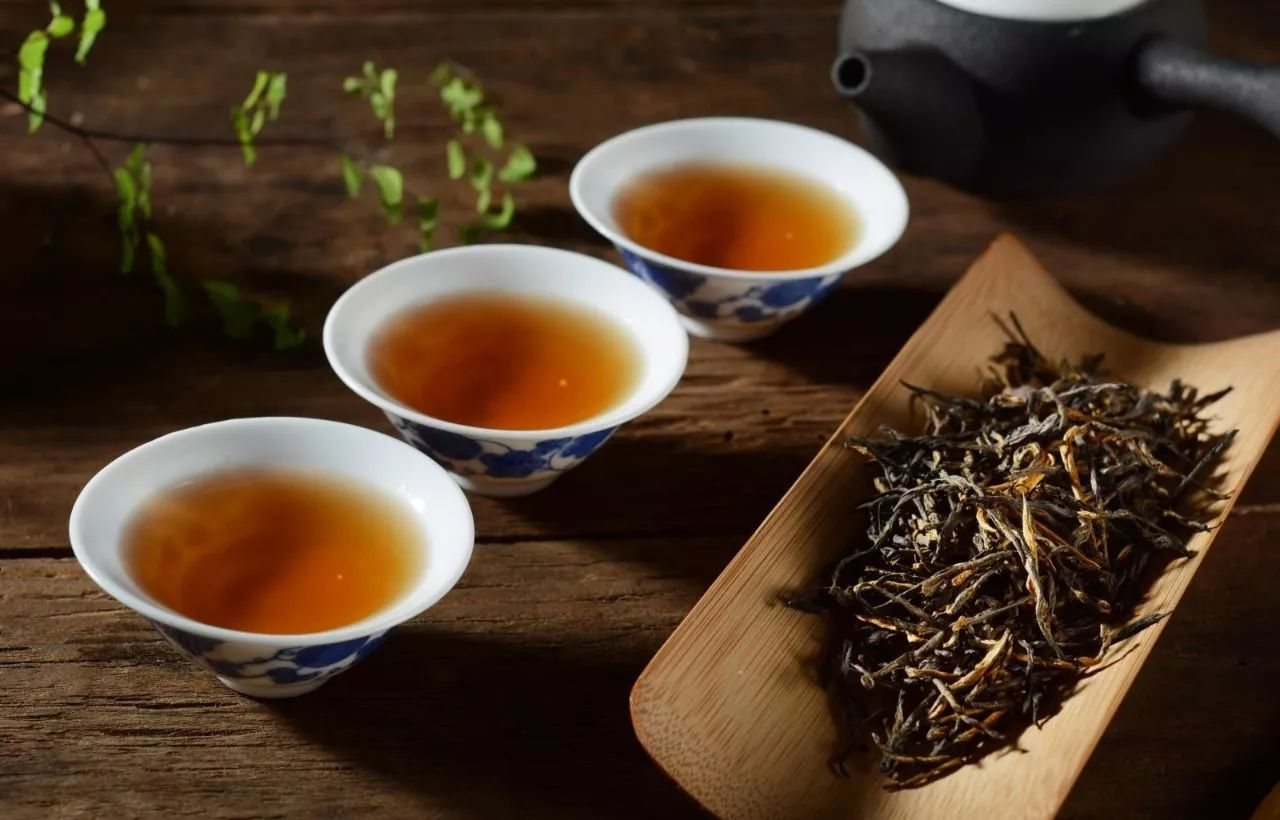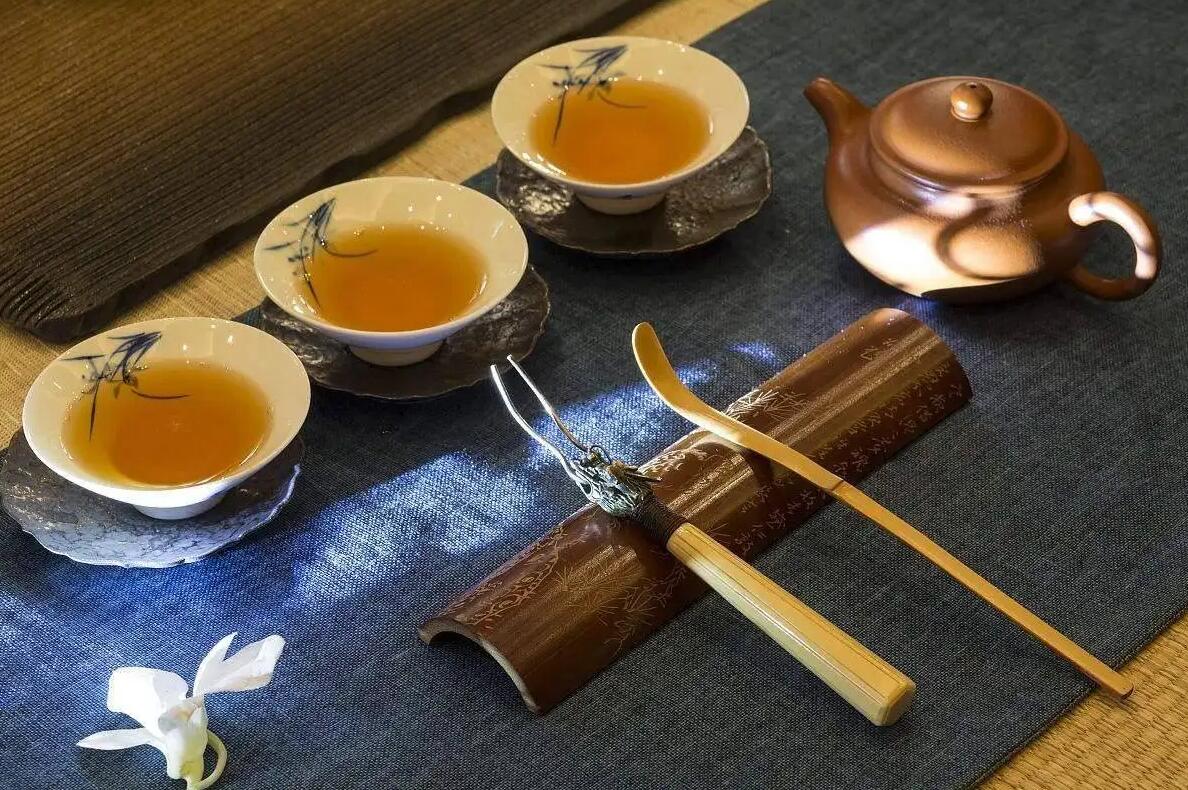By Chen Zhi Tong
PROFILE
Chen Zhi Tong is one of the leading experts on Puerh tea in the world today. He is a renowned speaker and the author of several prominent books and hundreds of published articles. His latest book "The Profound World of Chi-Tse" has become the academic and market standard for identifying state produced vintage Puerh. It would be difficult to find a Puerh shop in Asia without a Chen Zhi Tong book, magazine or poster somewhere amongst the tea.
In its early stages, the development of Puerh tea culture revolved around palace tribute and border sale tea. Horse caravans and the Old Tea Horse Road brought an air of mystery to those early days of Puerh. In addition, numerous private tea businesses added a rich human element to early Puerh tea culture. The influence of national strength in the production of Puerh tea caused exports to quickly become the driving force in its production.
An accident of history resulted in an unbroken overseas tea route between mainland China, Hong Kong, and Taiwan. This has provided a common historical link for Chinese people living m these different places. No matter how great their difference or how vast the distance separating them, only tea has been able to dissolve differences and draw these places together. Such is the strength of tea culture. I believe that only the value created by culture can truly move people and truly bring Puerh tea into people's lives, becoming a lifestyle aesthetics. This is so-called "soft force".
However, in today's Fangcun Tea Market, constantly changing quantity and prices have become the major force driving the market. Even more significantly, profit guarantees have become the major incentive for financial investment. At first glance, this would, seem to be an indication of a flourishing market for tea, but as the price structure grew imbalanced this large market unexpectedly suffered a sudden collapse. Is this the fault of Puerh tea? No, it's not. The actual culprit was our unrealistic and overly-high expectations. A psychology of anticipation is often the cause of bubble economies - Unrealistic expectations are often accompanied by abnormal market prices. As the enthusiasm has subsided, many people have been learned that hoping Puerh resemble financial stocks with sharp rises and falls is not as desirable as hoping that Puerh tea gains real value as it ages.
Raw material price increases were partially caused by inflationary pressure, A larger Factor, however, came as the tea production areas were Infected by the impulsive atmosphere of the market. Seeing such huge profits, who could resist feeling jealous? As to whether the tea was any good, or was actually Puerh, who could be expected to care? Last year's price increases are still fresh in the mind, but today they seem like a pleasant dream. I often wonder why no one has stopped to calmly reflect on the difference between today's Puerh tea price inflation and that of old tea. Old tea has spent nearly twenty years finding its value in the Taiwan and Hong Kong markets before settling on today's high prices. Of course extremely small quantities are a major factor, but there is an even more significant reason. Decades of accumulated tea culture rest upon a foundation of several thousand years of Chinese civilization. Drinking old tea is not only about enjoying the pleasant flavor of age in the mouth. It also carries with it a long-dormant feeling of ancient times, adding meaning to the lives of modern Chinese. This is the reason that old tea has been able to stand tall to this day.
Driven by speculators flipping merchandise, today's Puerh tea market has seen prices rise by nearly five times in the brief space of two years. These prices are the result of inflation, short term investment mentality, and a bit of greedy dreaming. Today's market conditions were not difficult to foresee. In fact: "fluctuations in Puerh prices can only be driven by quality. Prices can only change when quality changes." This is dual-faceted. When quality improves, prices naturally rise. When quality declines, prices should naturally fall. Many people like to drink old tea, and many people also like to drink quality tea. Quality tea is a concept of quality applied to new teas. Old tea is more affected by cultural concepts. These factors combine to make up the largest elements sustaining prices.
The largest problem facing today's Guangzhou tea market is that too much investment is based on concepts of so-called hard power. Hard power is much like the construction of a large building. Construction of hardware facilities is extremely easy, but culture cannot be created overnight. The cost of making French perfumes is not at all expensive. Factoring in culturally derived enjoyment and experience, though, they are able to satisfy an intangible demand. Even more important is that perfume has entered into consumers* lifestyles and is purchased by large numbers of people. The depth of the market is substantial. This is what is meant by "soft force." In addition to tea sellers,the Guangzhou market is faced with speculators, whose hoarding and driving up of prices comprise a very large portion of the market. Tea sellers and distributors are unable to clearly understand the actual situation distributors are faced with. This has also caused tea factories to accept erroneous information and has created mistaken analysis. It all clearly points to the fact that hard force docs not posses actual strength.
I was in Beijing chatting with Mr. Wu Yuan, the CEO of Menghai Tea Factory. He said something extremely thought-provoking: "Right now is the spring of Puerh tea. This is the season for cultivation. It is not the season of harvest. However, the seeds that are planted in the spring determine what kind of crop you will be able to harvest." I am extremely hopeful that everyone in this business is able to plant the seeds of culture, ensuring that Puerh tea enjoys a very rich future.
Next year will bring us face to face with reality, because next year we will see just how many people view drinking Puerh tea as an intrinsic part of their lives. The capacity of the market is precisely its capacity over the next two or three years. Speculators will no longer be seen, since they have already learned that Puerh tea can not only explosively rise in price, but can also tumble and even fall back to its starting point. Even more significantly, the greatest risk in Puerh tea is the difficul ty in converting it into cash. Rather than take risks, it is easier to invest in stocks or real estate. The starting prices for spring teas will determine the development of Puerh over the next two years.
What exactly is this support from Puerh tea drinking culture? From the standpoint of quality, drinking good tea is an extremely good support of price. Quality tea can be divided into a number of layers. One layer is the quality of taste in the mouth. Another is the quality of the mountain from which it originates and that mountain's raw material prices. This is an extremely solid basis for quality, and in the future, discussion of tea mountain culture and varieties of Puerh will increase in importance.
I am sure that many people care greatly about the Puerh tea in their collection. Is the raw material the original variety used in the past to make Red Mark (紅印/ Hong Yin)" Can its flavor equal the level of Red Mark? This type of link, transcending time and space, will be the new value in the future. Another perspective on drinking old tea is that the transformation in Puerh as it undergoes fermentation is not possible in a short period of time. Consequently, the length of time it has been aged is the most important basis of value for old tea. New tea with its liveliness and forcefulness cannot match the profound flavor of old tea. This makes age another factor in sustaining the value of Puerh, although more important is the quality of the environment in which the tea is aged. The effect of the storage environment becomes a factor in evaluating the tea. Good tea and old tea are separate concepts. If a new tea is high quality, after appropriate aging it will become a high quality old tea.
On. the other hand, if the new tea is garbage, it will remain garbage no matter how it is aged. Quality of the tea is a significant factor in propelling its future price. More important yet is whether or not drinking Puerh will further extend into the mainstream. The value of tea is created by people. If people do not place importance on tea, it naturally has no value. A market without a tea drinking culture is an unhealthy market. Tea culture can be divided into many aspects. These include culture surrounding tea utensil sets, tea brewing, tea health benefits, aging tea, alertness provided by tea, hui yun (回韻), etc.
This can be summed up in a single phrase: be particular. Only by being particular about quality will the consumer experience be perfected and the true experience of Puerh be realized. In pursuit of the highest flavor, we must also pursue this exquisite culture. Only this will sufficiently increase our sense of Puerh value and bring about a new infusion of force into the future market. Fertile grounds for high culture are inevitably found in places with high levels of economic development and large concentrations of educated people. Metropolises of the future will inevitably be drawn into the culture of Puerh consumption. Today many Puerh tea centers have been founded, but they arc merely physical constructions. I personally believe intangible strength is still somewhat lacking. The experience created by luxurious facilities and excellent service is not necessarily more moving than sitting with a small group of friends brewing, tasting, and discussing tea. The tea centers, however, have helped create a surge of this consumer culture, and will certainly have an impact on this cultural market.
The market of the future will be found wherever there are tea drinkers. If the market changes drastically, then we all must look to tea drinkers for answers. Consumer culture and consumer self-awareness are on the rise. As reason overtakes raw passion, the market will move toward maturity. Mr. Wu's words were not wrong. This is a season of cultivation. Will lush fields sprout up in the future or will paralyzing thorny bushes? This is dependent on the seeds we plant and the sweat we leave behind today. A new beginning means new hopes. I hope we can work together to bring a prosperous harvest to yield.



